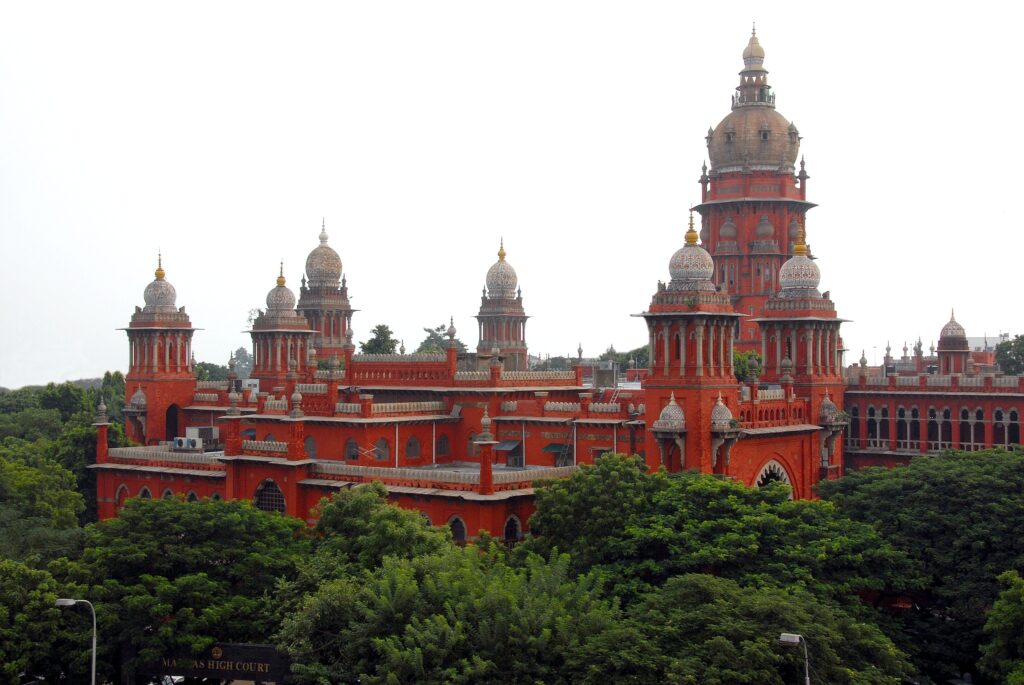Aastha Pareek
The Madras High Court recently delivered a notable judgment wherein they addressed issues surrounding ethical conduct by advocates in marital disputes. In the present case, the bench comprising of Justices V. Bhavani Subbaroyan and K.K. Ramakrishnan emphasized the importance of preventing unnecessary escalation in family matters, highlighting the duty of lawyers to guide clients responsibly and avoid further fracturing familial relations. This judgment underlines the judiciary’s growing concern regarding the role of legal professionals in handling sensitive cases of family discord.
The case involved a complex matrimonial dispute in which the appellant, Kalaiselvi, contested a lower court’s decision granting her husband, Sivakumar, a divorce. The initial discord stemmed from allegations of cruelty, accusations of false complaints, and prolonged legal confrontations, including criminal complaints against family members. The trial court, upon reviewing these allegations and subsequent events, upheld the divorce on grounds of irretrievable breakdown due to continuous hostility.
The Madras High Court noted that some advocates exacerbate matrimonial conflicts by inflating grievances and encouraging contentious legal action. The Court highlighted the “noble” nature of the legal profession and underscored that legal practitioners must prioritize peace and stability, especially in matrimonial matters. The Court referenced previous judgments where legal counsel’s excessive zeal contributed to an already tense familial situation, complicating the possibility of reconciliation and aggravating the discord between parties.
The Court expressed disapproval of how exaggerated complaints had led to undue hardship, affecting not only the litigants but also their extended families. The judgment calls for advocates to act as mediators, not instigators, and to avoid “adding fuel to the fire” by prompting their clients to pursue vindictive actions.
To curb such practices, the Court recommended the Bar Council of India and the Tamil Nadu State Bar Council establish clear guidelines. Below are the main directives:
1. Uphold Ethical Standards: Advocates must adhere to ethical standards and provide impartial advice to clients.
2. Avoid Misguiding Clients: Lawyers should refrain from encouraging or facilitating exaggerated allegations.
3. Limit Criminal Accusations to Relevant Parties: Advocates should dissuade clients from implicating individuals unrelated to the alleged offense.
4. Promote Amicable Resolutions: Lawyers are encouraged to suggest amicable settlements, understanding the impact of disputes on the lives of all involved, especially children.
5. Engage Qualified Counselors: Legal counsel should consider involving qualified counselors and use their reports as a basis for advice.
6. Document Client Instructions: Advocates must obtain written instructions from clients detailing alleged incidents to avoid misrepresentations.
7. Prevent False Accusations: Lawyers should inform clients about the potential legal repercussions of filing false complaints.
8. Discourage Arrests of Unconnected Individuals: Attorneys should resist supporting arrest actions unless necessary.
9. Maintain Neutrality: Advocates should act neutrally, fostering understanding between the two families involved.
10. Encourage Clients to Reconsider Misguided Complaints: If clients insist on filing baseless complaints, advocates should counsel them against it.
11. Proactive Dispute Resolution: Lawyers must aim to mitigate disputes, striving to rebuild rather than dismantle family relationships.
12. Consequences for Unethical Conduct: The Bar Council should take disciplinary action against lawyers found guilty of unprofessional or unethical behavior.
The Madras High Court’s judgement stands as a significant reminder of the responsibilities borne by advocates in family matters. By urging the Bar Council of India to establish firm guidelines, the Court underscored the critical role of ethical and compassionate counsel in mitigating marital conflicts. This judgment reinforces that the legal profession’s ultimate objective is to uphold justice and social harmony, a goal that can only be achieved through the judicious exercise of responsibility by its members.
Case Name:– ABC v. XYZ
Case Number:- C.M.A (MD) Nos. 65 & 66 of 2024
Bench: Justices V. Bhavani Subbaroyan and K.K. Ramakrishnan

